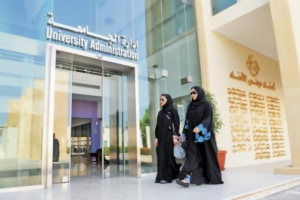Human Capital Development in KSA: A Catalyst for Innovation and Growth

Introduction
In today’s rapidly evolving global economy, the significance of human capital development cannot be overstated. Human capital, comprised of the knowledge, skills, and capabilities of a nation’s workforce, serves as a cornerstone for sustainable economic growth, innovation, and overall national prosperity. Recognizing this pivotal role, governments worldwide have increasingly emphasized investing in human capital as a means to drive economic advancement and societal progress.
One nation at the forefront of this strategic investment is Saudi Arabia, which has embarked on an ambitious journey of transformation through its Vision 2030 initiative. Envisioned by Crown Prince Mohammed bin Salman, Vision 2030 outlines a comprehensive roadmap for diversifying the Kingdom’s economy, reducing its dependence on oil revenues, and fostering a vibrant, knowledge-based society. At the heart of this vision lies a strong emphasis on human capital development, reflecting Saudi Arabia’s commitment to equipping its citizens with the necessary skills and competencies to thrive in the 21st-century global landscape.
In this blog post, we will delve into the significance of human capital development in the Kingdom of Saudi Arabia (KSA), examining its implications within the framework of various strategic initiatives such as the Human Capital Initiative (HCI), HCDP (Human Capital Development Program), Saudi Leap, and the Future Investment Initiative (FII). By exploring the intersection of these initiatives, we aim to provide insights into the challenges, opportunities, and strategies associated with enhancing human capital in KSA and its implications for the nation’s economic trajectory.
The Current Landscape of Human Capital in KSA
Saudi Arabia’s unemployment rate sits at a seemingly manageable 5.1%, a closer look reveals a troubling mismatch between the skills of the workforce and the demands of the job market.
Part of the issue lies in the quality of education.Currently, over 60% of higher education students in KSA are enrolled in programs that do not meet the qualification requirements of the high-demand job roles.
According to research conducted in 2018 by Korn Ferry, Saudi Arabia is on track to confront a significant deficit of skilled workers, reaching a staggering 663,000 by the year 2030. This shortage carries a hefty price tag, with potential unrealized revenue estimated to soar to an astonishing US$206.77 billion by the same year.
Further complicating the picture is the acute talent shortage in several key sectors. This is particularly pronounced in areas critical to Vision 2030, the country’s ambitious economic diversification plan.
Sectors like information & communication, manufacturing, transportation & storage, and finance & insurance, wholesale & retail are the most priority sectors that are likely to offer the greatest workforce opportunities in the coming future long-term success of Vision 2030.
Key Initiatives for Human Capital Development
In response to the challenges mentioned above, the Saudi government has launched several initiatives aimed at fostering human capital development, implementation of vocational training programs and skill development initiatives underscores the commitment to enhancing the capabilities of the workforce.
It’s important to note that these are non-exhaustive examples of the government’s efforts in this area.
Knowledge Generation Initiatives:
-
Human Capability Investment Initiative (HCI):
The Human Capability Investment Initiative (HCI) is a strategic program aimed at enhancing the skills and capabilities of Saudi Arabia’s workforce to align with the demands of a knowledge-based economy. The primary goal of HCI is to foster the development of a highly skilled and adaptable workforce capable of driving innovation, productivity, and sustainable economic growth.
Under HCI, several key programs and projects have been launched to address specific skill gaps and promote lifelong learning. These initiatives include:
HCI implements diverse skills development programs across sectors like IT, healthcare, engineering, and finance, offering vocational training and certifications to equip individuals with industry-relevant skills. It emphasizes education investment from early childhood to continuous professional development, focusing on improving quality, relevance, and STEM education. Additionally, HCI supports entrepreneurship and innovation through startup and SME support, fostering a culture of creativity and problem-solving in the workforce. -
Saudi Leap:
Saudi LEAP’s objectives are to bring together the global technology ecosystem and to discover what’s next for technology. LEAP focuses on technological transformation by featuring speakers who are leading change-makers in the tech industry.
Saudi Leap initiatives contribute to developing a workforce equipped for the digital age by providing a platform to meet with key decision-makers and to learn about the latest trends and topics in technology. -
Future of Jobs Initiative (FII):
The Future of Jobs Initiative (FII) is a forward-looking program aimed at preparing Saudi Arabia for the evolving job market and future skills needs. FII seeks to anticipate trends, identify emerging skill requirements, and equip workers with the necessary skills and competencies to thrive in the digital economy.
FII conducts thorough labor market analyses to grasp trends, technological shifts, and forthcoming skill demands, guiding policy decisions and strategic actions. With a focus on aligning education and training programs with evolving job opportunities, FII aims to bridge skills gaps effectively.
Policy and Capability Building Initiatives:
-
Human Capability Development Program (HCDP):
A key initiative for human capital development in Saudi Arabia is the Human Capability Development Program (HCDP). Launched in 2021, it focuses on building a future-ready workforce by strengthening education from childhood to adulthood, aligning it with job market needs, and providing opportunities for skill development throughout one’s career.
The HCDP also emphasizes core values to empower Saudi citizens for success in the digital age. By investing in its people, the HCDP is helping Saudi Arabia to build a more competitive and prosperous future. -
Misk Leadership Program:
The Misk Leadership Program is another significant initiative under Policy and Capability Building. This program aims to develop leadership capabilities among the people of Saudi through specialized training, mentorship, and exposure to global leadership practices.
The Misk Leadership Program appears to offer a range of programs targeting leaders at different career stages, from youth to senior-level executives. Here are some examples of their leadership programs:- Misk Global Traineeship Program
- Early-Stage Startup Programs
- Misk Initiatives Incubator
- Misk NPO Essentials Masterclasses
- Emerging Youth Program
- Misk Career Essentials Program
By nurturing leadership skills, Misk Leadership Program contributes to the long-term development and prosperity of Saudi Arabia inline with Vision 2030.
Why Investing in Human capital through the Education system is crucial for Saudi Arabia?
Investing in human capital through a robust education system is undeniably crucial for Saudi Arabia’s future prosperity. The ambitious goals outlined in Saudi Vision 2030, which include economic diversification and a knowledge-based society, hinge on a skilled and adaptable workforce. Here’s a breakdown of why education is paramount for the Kingdom’s success:
- Economic Transformation: Vision 2030 aims to wean Saudi Arabia off its dependence on oil revenue. A 2020 report by the Organisation for Economic Co-operation and Development (OECD) in collaboration with the Saudi Ministry of Education emphasizes that “focusing on developing human capital is crucial if Saudi Arabia is to transition to a balanced and sustainable economy” . The World Bank’s data corroborates this notion, showing a strong correlation between educational attainment and GDP growth. An educated populace fosters innovation, entrepreneurship, and the ability to compete in a globalized knowledge economy. Source : (https://www.oecd-ilibrary.org/education/education-in-saudi-arabia_76df15a2-en)
- Reduced Reliance on Foreign Talent: A robust education system can help reduce dependence on foreign talent, lowering operational costs for local businesses.
- Demographic Dividend: Saudi Arabia boasts a young population, with over 60% under the age of 35, according to a 2022 report by CBER. This presents a unique demographic dividend, a window of opportunity for rapid economic growth. However, it can only be harnessed by A robust education system that caters to 21st-century job demands and is vital to ensure this demographic advantage translates into economic prosperity.
Conclusion: The Road Ahead for Human Capital Development in KSA
The journey of Human Capital Development (HCD) in the Kingdom of Saudi Arabia (KSA) holds immense potential for growth and advancement. While strategic initiatives like HCI, Leap, and FII pave the way for a brighter future, these examples are additional areas requiring significant attention.
Firstly, higher education needs to align more closely with the evolving job market by restructuring curricula and enhancing industry-academia partnerships.
Secondly, providing targeted training opportunities is crucial to ensure the workforce remains competitive in a changing economic landscape.
Furthermore, addressing talent distribution and internal migration to urban centers like Riyadh requires targeted policies to decentralize economic opportunities.
In this endeavor, Emkan Education has been actively engaged, aligning its efforts with broader initiatives aimed at human capital development in KSA. Through strategic consulting, capacity-building programs, and collaboration with stakeholders, Emkan is contributing to the nation’s journey towards a more skilled, empowered, and prosperous future.
As Saudi Arabia pursues Vision 2030, investing in human capital remains paramount. By addressing these critical areas, the Kingdom can unlock new opportunities and secure a prosperous future.
Citations:
- Saudi Arabia’s Vision 2030: Analyzing the Transformation Plan and Implications” by Dr. Ahmed Al-Darwish and Dr. Salem Al-Darwish.
- “Human Capital and Economic Growth in Saudi Arabia: An Empirical Analysis” by Dr. Fahad Abdullah Alsharif.
- “Education and Economic Development in Saudi Arabia: Challenges and Opportunities” by Dr. Samia Ibrahim Akeel.
- “Skills Mismatch and Labor Market Dynamics in Saudi Arabia: Challenges and Policy Responses” by Dr. Abdulaziz Alghashian.
- https://www.kornferry.com/about-us/press/korn-ferry-study-reveals-global-talent-shortage-could-threaten-business-growth-around-the-world
- https://www.stats.gov.sa/sites/default/files/LMS%20Q1_2023_PR_EN.pdf
- https://www.vision2030.gov.sa/en/vision-2030/vrp/human-capacity-development-program/
- https://www.linkedin.com/pulse/leveraging-education-technology-empower-saudi-arabias-muhammed/
- https://data.worldbank.org/topic/education?view=chart
- https://www.oecd-ilibrary.org/education/education-in-saudi-arabia_76df15a2-en
- https://cberuk.com/cdn/conference_proceedings/2022-05-15-15-39-21-PM.pdf
Related Articles
Most Popular










